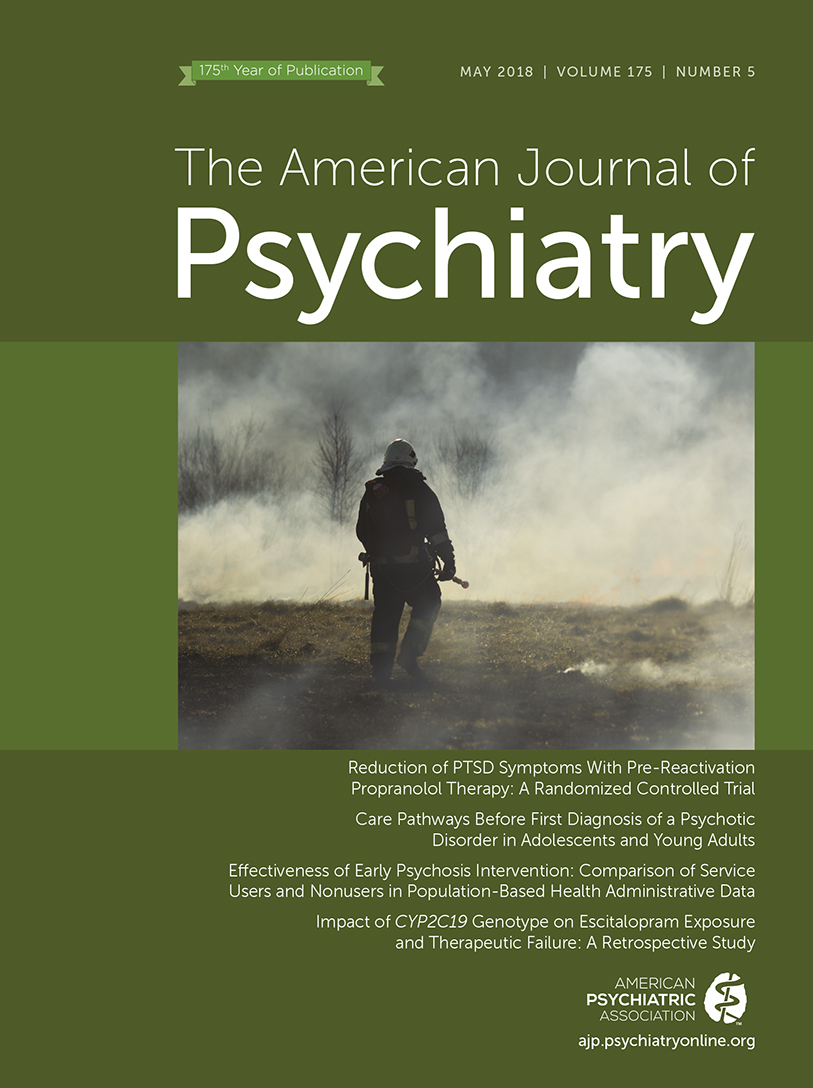Comment on Late-Onset ADHD Reconsidered With Comprehensive Repeated Assessments Between Ages 10 and 25
To the Editor: We read with great interest the article by Sibley et al. (1), published in the February 2018 issue of the Journal, examining symptoms of attention deficit hyperactivity disorder (ADHD) longitudinally in a cohort without a baseline childhood diagnosis.
The authors identified cases of possible late-onset ADHD via screening and then used an iterative process to rule out nontrue cases. The overwhelming majority did not have true late-onset adult ADHD but had childhood symptoms persisting into adulthood, or they did not have ADHD (rather, they had cognitive impairment due to heavy substance use or other psychiatric morbidities).
These U.S. findings accord closely with our experience in U.K. adult ADHD clinics. We have not observed a single case of true adult-onset ADHD. The authors’ findings (1) support the need for specialist assessment by experienced ADHD clinicians. Screening instruments are blunt tools, potentially helpful for initial gate-keeping but not for confirming or refuting an ADHD diagnosis or for teasing apart nuanced differences from or overlap with other disorders.
Sibley and colleagues identified two adults with late-onset ADHD where the diagnosis may have been valid (i.e., there was an absence of childhood symptoms, and symptoms were not due to heavy substance use or other identified mental disorders). We wonder whether these uncommon cases may reflect organic pathology, such as cognitive dysfunction from thyroid disease or traumatic brain injury (diffuse axonal injury can give normal results on a brain scan) or other psychiatric disorders (e.g., impulse control disorders or gambling disorder, which are not typically screened for).
In the United Kingdom, there is a lack of National Health Service resourcing for adult ADHD. As Sibley et al. acknowledge, decades of research support ADHD as a chronic neurodevelopmental condition that often persists into adulthood (1). Recent DSM changes allow for the diagnosis of some high-functioning adult cases. The lack of resource provision in the United Kingdom is extremely unfortunate given ADHD’s high prevalence, coupled with the existence of clinically effective, cost-effective treatments. ADHD treatment may reduce criminality and driving accidents (2, 3). For those with ADHD treated appropriately, patients often report profound benefits for everyday functioning.
1 : Late-onset ADHD reconsidered with comprehensive repeated assessments between ages 10 and 25. Am J Psychiatry 2018; 175:140–149Link, Google Scholar
2 : Medication for attention deficit-hyperactivity disorder and criminality. N Engl J Med 2012; 367:2006–2014Crossref, Medline, Google Scholar
3 : Influence of stimulant and non-stimulant drug treatment on driving performance in patients with attention deficit hyperactivity disorder: a systematic review. Eur Neuropsychopharmacol 2014; 24:1425–1443Crossref, Medline, Google Scholar



